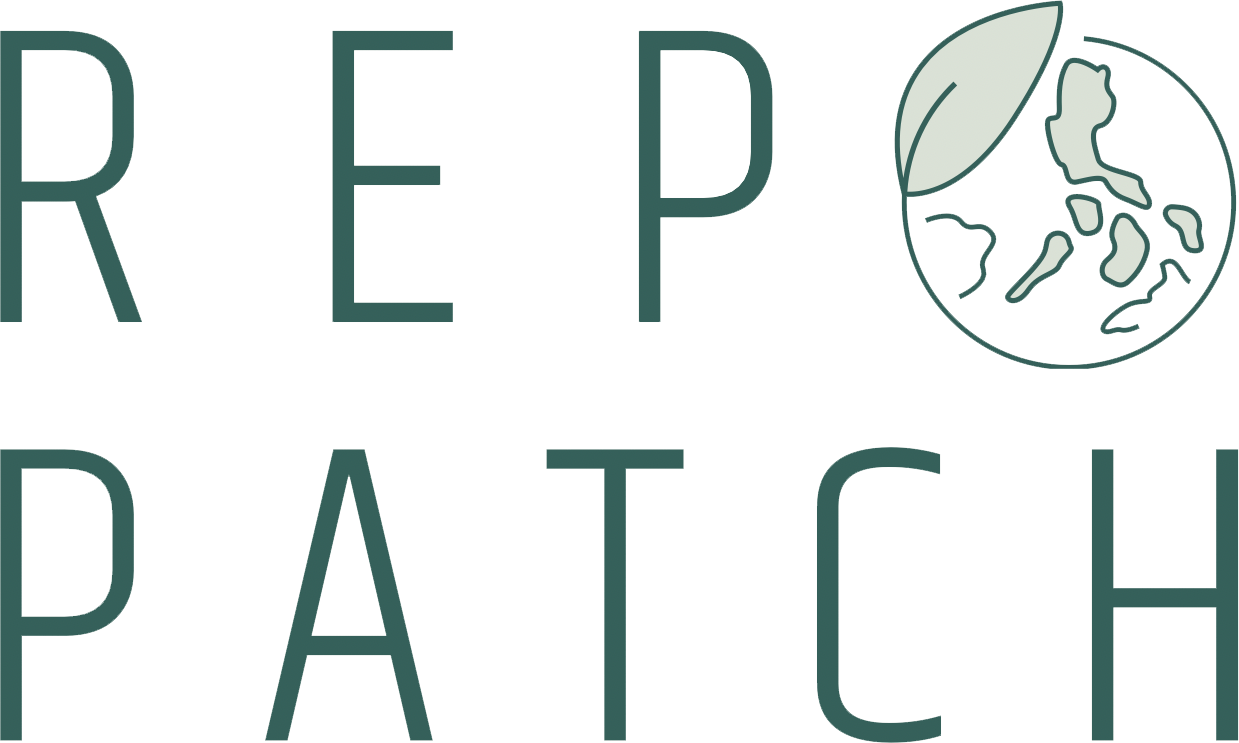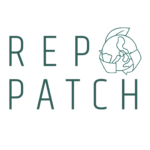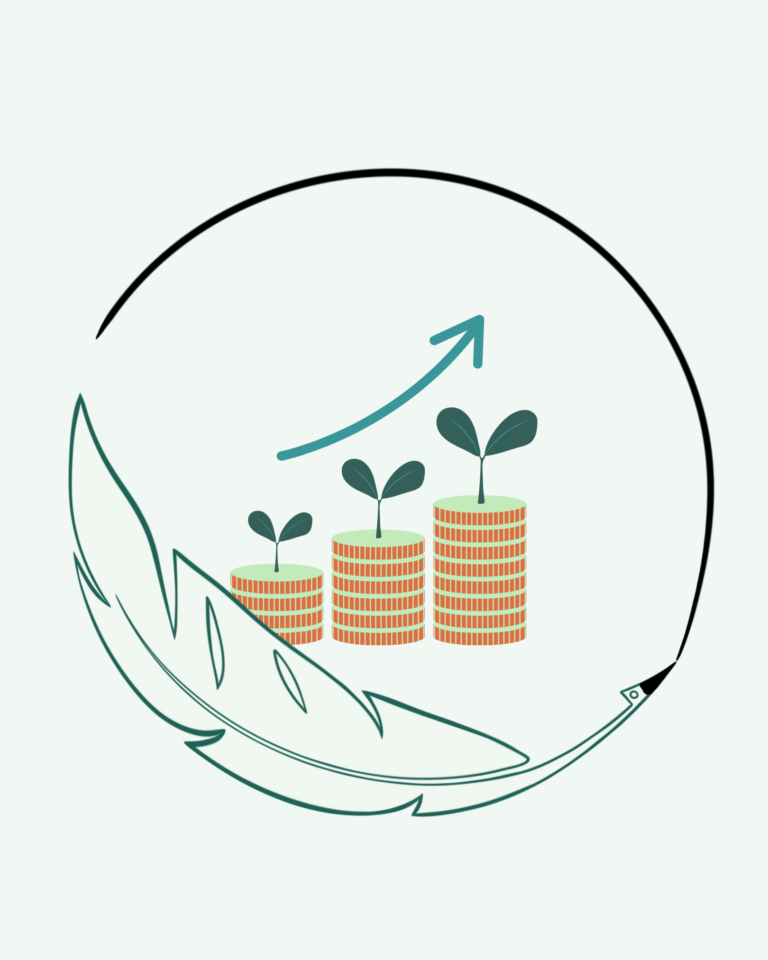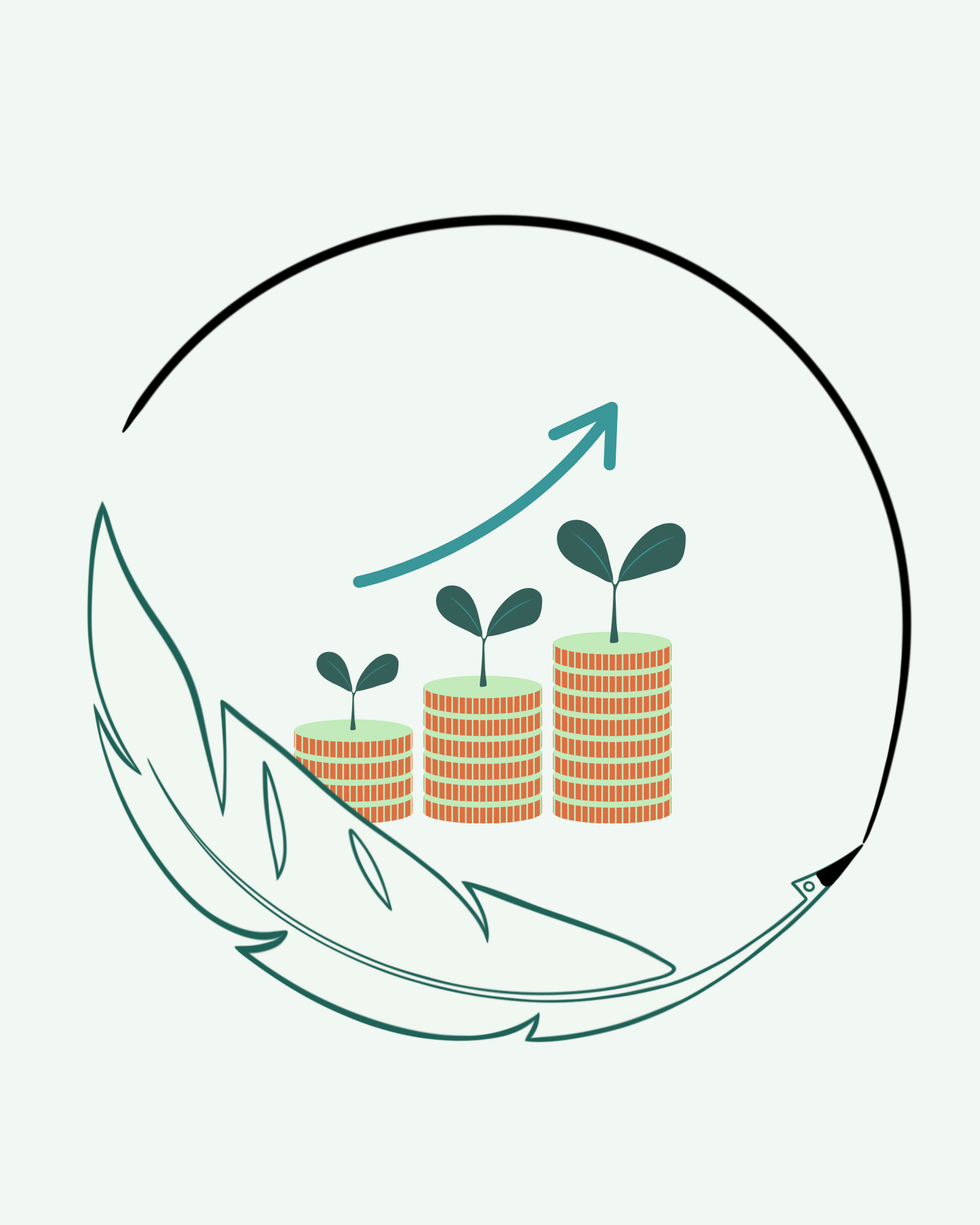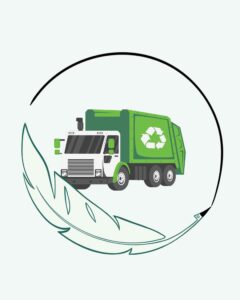What is corporate sustainability? Means that a company prioritizes long-term growth and success among its goals by taking into account environmental, social and governance (ESG) values. ESG reveals a holistic approach that includes companies’ responsibilities not only to profit but also to the environment, employees and society.
ESG criteria bring corporate sustainability together under three main headings:
- The environmental dimension covers the environmental responsibilities that companies try to meet in the areas of reducing their carbon footprint, energy efficiency and waste management.
- The social dimension covers the responsibilities that companies try to meet ethically and humanely in the areas of labor rights, diversity, inclusiveness, employee health and social impact.
- Governance covers elements such as transparency, compliance with ethical rules, balance between managers and reporting that companies demonstrate in their decision-making processes.
ESG is a very important indicator of how successful, sustainable and responsible companies are in creating long-term value for investors and consumers. For this very reason, corporate sustainability is no longer a choice, but a globally accepted business model and understanding. Many global companies are trying to make a difference in the business world by not only reducing their environmental impacts in order to comply with ESG criteria, but also by investing in the well-being of their employees and raising ethical management standards.
The concept of corporate sustainability is a concept that is shaped by the sector in which the relevant company is located, production and management activities, and many other subheadings, and expands as it takes shape. After all, the goals are big, for example, the end result of a company reducing its carbon footprint is of course to do its best by reducing it even more each year. This means making its work more environmentally friendly every year. As we will mention later in our article, there are some interesting numerical successes in the reports we examine. It is quite clear that companies that do corporate sustainability and ESG work not because they have to, but because they really care, achieve higher profitability in the long term.
As Reppatch, we contribute to these goals of companies and develop innovative solutions that focus on both environmental and social benefits with upcycling projects. The biggest catalyst of our partner network is to create a positive impact for our world and to create this positive impact, they use their creative minds to develop special and niche upcycling methods for waste.
Upcycling and Corporate Sustainability
As Reppatch, our primary goal since our establishment has been to prioritize upcycling and corporate sustainability in the business world and to offer innovative, creative and continuously applicable solutions to companies involved in this process. Through our upcycling workshops, we offer the opportunity for employees of companies to experience this important concept, provide training on sustainability and develop creative projects for the re-evaluation of waste generated in production processes. We provide research, analysis and consultancy services to make these processes more effective. Because any work that cannot be measured and reported is not sufficient and successful for us.
Sustainability does not only mean developing environmentally friendly practices and complying with ESG (Environmental, Social and Governance) criteria; it has also become an economic necessity worldwide. According to the United Nations’ Sustainable Development Goals (SDGs), there are estimates that the transition to sustainable practices worldwide will contribute trillions of dollars to the economy by 2030. These estimates are based on some strong facts. For example, a 2021 study by McKinsey reveals that companies that adopt sustainable business models achieve up to 30 percent higher profitability in the long term. This clearly shows us that sustainability plays a critical role not only environmentally but also financially.
If we briefly mention the Sustainable Development Goals (SDGs); Following the 2030 Agenda for Sustainable Development adopted in 2015, the United Nations has determined 17 Sustainable Development Goals and created a guide for the goals targeted in 2030. The scopes of these goals were published in order to ensure social, economic and environmental sustainability worldwide in areas such as combating poverty, ensuring equality, combating climate change, healthy living and welfare, education, clean water and sanitation. The goals encourage all countries and all stakeholders to cooperate at local and national levels as a priority to achieve these goals. In this context, sustainable development goals are of critical importance for ensuring global equality and justice.
Reppatch continues its work by making the United Nations Sustainable Development Goals its guide and focusing on three of them in particular. These goals are:
Sustainable Cities and Communities (Goal 11): The aim of this goal is to create sustainable, safe and inclusive cities and communities. Reppatch carries out its work with the aim of inspiring and raising awareness in individuals to change their lives and environment towards sustainability with its partner network. It works to reduce the environmental impacts of urban areas by organizing various projects and events that support women, ethical production and consumption by collaborating with local communities.
Responsible Consumption and Production (Goal 12): This goal covers the management of natural resources and reducing waste production. Reppatch aims to support and pioneer brands that upcycle by advocating upcycling, which is the first step of a sustainable production and consumption model. It argues that waste should be repaired if possible before recycling, and if not, upcycled. It helps companies increase their competencies and work on waste management within the scope of corporate sustainability by organizing workshops and training programs, and develops creative projects to minimize waste generated in production processes.
Partnerships for Goals (Goal 17): This goal envisages developing strong global partnerships to support sustainable development and actually covers all goals. Reppatch strengthens its application tools and fields of activity by establishing global partnerships with its Partner Network established worldwide. Thanks to these partnerships, it provides the necessary resources and information sharing to achieve sustainability goals and develops collaborations on a global scale. It paves the way for achieving goals through joint projects.
As Reppatch, we believe that achieving these goals is not only a responsibility but also a great opportunity. With our upcycling and sustainability approach, our greatest catalyst is to lead these issues to gain more importance in the business world. We have a vision that aims to contribute to a greener, more just and more sustainable world in each project.

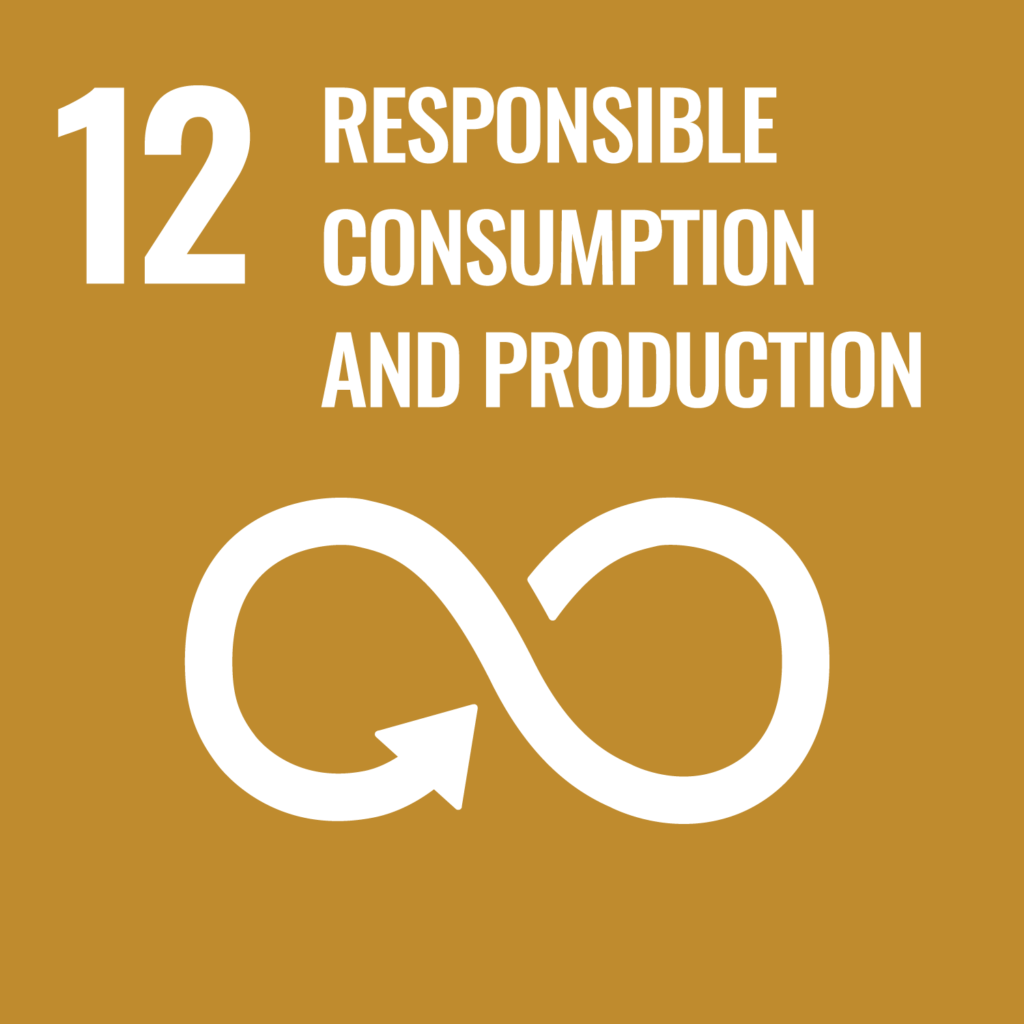

Corporate Sustainability and Employer Brand
In order for corporate sustainability efforts to create a lasting impact, it is very important to raise awareness of employees on this issue. Because every individual within the company is a big part of this process, big impacts start from individuals. The workshops conducted by Reppatch are one of the most effective ways to increase this awareness. Employees thoroughly learn the concepts of recycling and upcycling, and they have the opportunity to apply these concepts and what they have learned not only in their workplaces, but also in their personal lives and living spaces.
The statistics we examined reveal that when employees become more conscious of sustainability, their job performance increases. A study conducted by Harvard Business Review reveals that employees with sustainability awareness work 21 percent more efficiently. One of the most effective ways to create this awareness is to directly involve employees in projects such as recycling and upcycling. The workshops offered by Reppatch, which work with different wastes, aim to spread this awareness in both an entertaining and educational way.
In addition, creating a sustainability-focused employer brand increases the competitive advantage of companies today. Employees and candidates who are aware of sustainability and passionate about nature now prefer to work in an organization that is sensitive to society and the environment. In this regard, as Reppatch, we have always placed great importance on developing projects that encourage employees to participate in this process. The trainings and events provided in our workshops help employees feel valued while also making a great contribution to the organization’s achievement of sustainability goals. Thus, we both increase employee loyalty and strengthen the value of employer brands.
Increasing sustainability awareness not only reduces environmental impacts; it also makes significant contributions to the company’s overall success. As Reppatch, we constantly work to develop these two areas together.
Corporate Sustainability and Energy Saving
Energy saving is one of the most effective ways to protect the environment and reduce costs. In line with corporate sustainability, companies not only reduce their environmental impacts by providing energy efficiency, but also provide significant savings on energy bills, which sheds light on the financial impacts we mentioned at the beginning of our blog post. For example, only 30 percent of businesses worldwide have switched to energy-efficient renewable energy sources. However, it is known that even this small percentage reduces annual energy costs by up to 20 percent. The World Bank states that energy efficiency can save not only companies but also the global economy $250 billion annually.
There are various strategies that can be applied in different sectors to save energy. We have examined the sectoral distribution of energy savings as follows:
Production-Manufacturing Sector: In energy-intensive processes, regular maintenance of industrial machines and using energy-efficient equipment can provide major savings. Advanced technologies provide optimization of the production process while also significantly reducing energy consumption, so it is necessary to follow current solutions and technologies well. Companies in this sector can identify the most costly processes and make improvements in the areas they determine by using software that analyzes energy consumption.
Offices and Commerce: Energy savings in office buildings can be achieved by replacing lighting systems with LEDs, using smart thermostats, and generally preferring energy-efficient devices. In addition, raising employees’ awareness about energy saving through training and events plays an important role in reducing daily energy consumption.
Agricultural Sector: Achieving energy efficiency in agriculture is possible with the improvement of irrigation systems, the use of energy-efficient equipment and sustainable farming methods. By using renewable resources such as solar panels, it is possible to significantly reduce energy costs with the magnificent power of nature.
Construction Sector: The use of energy-efficient materials in new construction projects and the integration of passive energy-saving methods in building design provide significant cost savings in the long term. In addition, renovation works carried out to increase the energy performance of existing buildings are also of critical importance in terms of energy saving.
It is very important for companies to follow their innovations with sectoral distribution. Unity and learning from each other are the most important criteria for the realization of sustainable development goals. This criterion should be embraced and continuous improvement works should be carried out for corporate sustainability.
Recycling and Upcycling Studies for Corporate Sustainability
Recycling and upcycling studies for corporate sustainability play a critical role in reducing environmental impact. Effective recycling systems aim to reuse paper, plastic, glass and electronic waste by separating them correctly in accordance with zero waste principles. However, only 60% of corporate companies worldwide have an effective waste management system. According to research conducted by the European Union, if this rate is increased, it would be possible to reduce 72 million tons of carbon emissions annually in Europe alone.
In-company recycling and upcycling practices offer great opportunities not only in terms of re-evaluating waste, but also in terms of reducing costs and increasing workforce efficiency. For example, in the manufacturing sector, reusing waste materials can significantly reduce the cost of new products. In the construction sector, recycling construction waste makes great contributions to reducing environmental impacts and saving materials.
Reppatch offers innovative and creative approaches in terms of creative use of waste in upcycling. In the project we carried out with Aksa Generator, we did not limit the upcycling processes to waste reduction only; we also showed the company employees how this process can be used more effectively by creating creative and functional products from waste. 2 tons of waste sponges generated during the production processes were shredded and used as filling material and were turned into beautiful and comfortable waist pillows and distributed to 1000 employees.

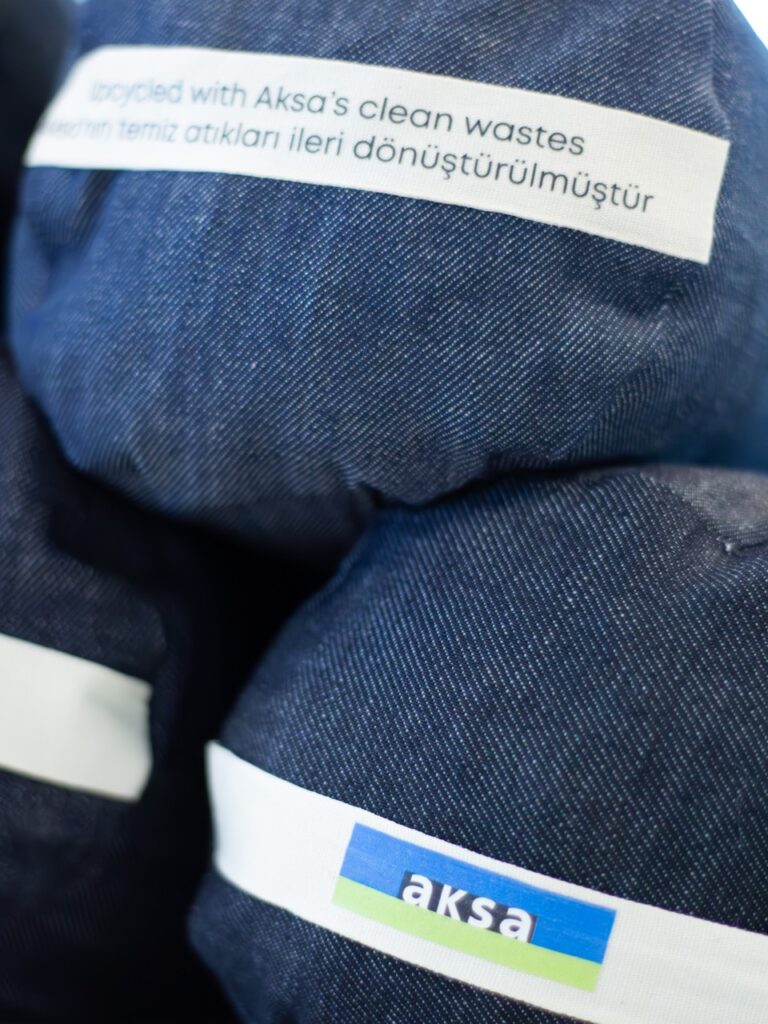
While our workshops ensure that employees are aware of recycling and upcycling, they also encourage cooperation and creativity within the team. In this way, every individual within the company has the opportunity to actively participate in sustainability processes and thus sustainability awareness is established in the company culture. These approaches not only provide environmental benefits, but also strengthen the employer brand of the companies and increase employee satisfaction. In order to effectively demonstrate corporate sustainability, such studies should never be one-time and should continue to be measured by repeating them. Continuity strengthens and grows the effect.
Waste Reduction in Production: On the Road to a Circular Economy
Minimizing waste generated in production processes is a critical step in both adopting an environmentally friendly approach and reducing production costs. Before discussing the details of waste reduction in production, it is necessary to thoroughly learn the concept of “Circular Economy”.
The concept of the circular economy is an economic model based on the most sustainable use of resources and minimizing waste. Instead of the common “take, use, throw away” approach, the aim is to reuse, repair and recycle products and materials. The basic principles of the circular economy consist of resource efficiency, waste management, product design and economic-social benefits. The circular economy is an approach that supports economic growth while reducing environmental impacts and makes a great contribution to a sustainable future.
It is expected that circular economy applications in the world will contribute $4.5 trillion to the global economy by 2030. The focus of this economic model is to re-evaluate every material considered waste and include it in a new production process. For example, in the textile sector, fabric waste generated during production can be used repeatedly in the production of new clothes or accessories. Similarly, in the food sector, organic waste is composted and used in agriculture or evaluated in biogas production.
The increasing prevalence of the circular economy model in the business world contributes to the more efficient use of resources and the minimization of environmental impacts to the greatest extent possible. This transformation has the potential to create cost savings and competitive advantage not only for the environment but also for companies.
As Reppatch, we offer creative solutions for corporate sustainability to companies to develop waste reduction strategies in production. With our upcycling projects, we create great awareness about the reuse of waste materials.
Upcycling: The Power of Sustainable Art with Reppatch
Upcycling is a highly innovative method that allows waste materials to gain value and be reused in a creative and functional way. Unlike recycling, in this process, waste is not only reprocessed, but also becomes functional with the power of design and creative thinking. As Reppatch, we offer inspiring and creative solutions to both companies and individuals in this field.
Corporate sustainability with Reppatch provides services under three main headings:
Employer Brand Activities
Employer brand activities are the set of strategies developed by a company to reflect its internal values and culture to its employees. These activities are of critical importance for increasing employee loyalty, strengthening the company’s reputation and spreading sustainability awareness. As Reppatch, the workshops, training programs and events we organize offer employer brand solutions to companies in order to convey the importance of sustainability in an entertaining and educational way.
Sustainable Behavior Analysis
Sustainable behavior analysis is a program we carry out to measure employees’ environmental responsibilities and awareness levels on this issue. By analyzing these processes, Reppatch helps companies make their sustainability strategies more effective. Our research studies show that as employees’ participation in sustainability increases, their environmental awareness and job performance also improve positively. Our training programs teach participants how to integrate this information into their daily lives, as well as teach them recycling and upcycling processes. As a result, we report the data obtained and present companies with the development of their employees in sustainability, and with the continuity of our projects, employees become more conscious individuals after each new event/training and start to create a positive impact on the world.
Consultancy
Our consultancy services aim to guide companies in achieving their sustainability goals and provide strategic solutions. Reppatch thoroughly understands companies’ waste management strategies and brings companies together with the right people in its partner network to offer the most accurate solutions possible. It manages all processes from A to Z flawlessly and professionally to complete the projects presented with the right collaborations.
As Reppatch, every step we take is for a greener and more livable future. We will continue to guide both companies and individuals on the sustainability journey by doing our best. Each workshop, training and consultancy process makes a significant contribution to spreading sustainability awareness to all segments of society. As Reppatch, we aim to create permanent effects in both environmental and social terms by enriching these processes.
Sustainable Behavior Analysis Project: From Awareness to Action
As Reppatch, we do not limit our commitment to sustainability only to environmental projects; we also analyze the behaviors of individuals and organizations on this issue and create reports that contribute to their development. Our sustainable behavior analysis project has emerged as an important tool for companies to achieve their sustainability goals. This project was developed with our expert research sociologist and partner network in order to increase sustainability awareness, measure the environmental behaviors of employees and create strategies to improve these behaviors.
Main Objectives of the Project
We can examine the main objectives of the sustainable behavior analysis project under three subheadings:
Creating Awareness: To increase employees’ knowledge on sustainability and to ensure that they are aware of their environmental responsibilities.
Observing Behaviors: Examining current behaviors of employees on issues such as recycling, upcycling, energy saving and waste management.
Developing Strategies: Developing strategies that encourage sustainable behaviors in line with the data obtained.
Project Implementation Phases
Our project consists of four phases:
Research and Data Collection: In the first phase, we conduct surveys and interviews to evaluate the current behavior of employees. In this phase, we collect data about the current situation of the participants by asking them questions about their knowledge, attitudes and actions on sustainability. In addition, we analyze the current practices within the company and determine the strengths and weaknesses regarding sustainability.
Education and Raising Awareness: In line with the data collected, we organize training programs for employees. These trainings focus on recycling and upcycling methods, energy saving and sustainable lifestyle. While participants develop their knowledge through these trainings, they also have the opportunity to reinforce what they have learned by doing practical applications in our workshops.
Behavior Change Monitoring: After the training, we establish follow-up mechanisms to observe the change in employees’ behaviors. In this phase, we measure how the environmental behaviors of the participants in the training have changed with repeated surveys. This data is used to evaluate the effectiveness of the trainings, the impact of the company’s sustainability activities on employees and to develop sustainable strategies.
Reporting and Feedback: In the last phase, we analyze the obtained data and create detailed reports. These reports are presented to the company management and include the development, awareness and behavioral changes of the employees regarding sustainability. We also provide concrete data to show how much the practices within the company contribute to the sustainability goals.
The first results of our sustainable behavior analysis project were quite promising. To give an example from one of our studies; during the research phase, it was determined that only 40 percent of the employees had sufficient knowledge about recycling and upcycling processes. However, after the training and workshop programs, this rate increased to 80 percent. This situation shows that in addition to the increase in sustainability awareness, the environmental behaviors of the employees have also changed positively and provides great hope for corporate sustainability.
Our sustainable behavior analysis project not only improves the individual behaviors of the employees, but also makes a significant contribution to the company’s general sustainability strategies. The company managements working with us aim to create a long-term change by making the awareness of the employees regarding sustainability a part of the corporate culture.
In addition, the data obtained creates a guide that clearly shows in which areas the company has made progress towards achieving its sustainability goals and in which areas more work needs to be done.
With its sustainable behavior analysis project, Reppatch aims to not only create an environmental transformation but also to increase the commitment of employees and companies to sustainability. Each project is considered as an important step towards a greener future, and increasing sustainability awareness is not only a necessity but also an opportunity.
The steps we take today towards corporate sustainability will shape the business world of tomorrow and play an important role in building a sustainable future. As Reppatch, we will continue to guide both companies and individuals on our sustainability journey. Each of our projects aims to create both environmental and social impacts. Raising awareness among employees and changing their behaviors positively is the biggest key to the future success of sustainability. We are quite determined to walk together on this journey and achieve the goal of creating a greener world.
Our sustainability journey continues to progress with the vision of not only protecting our environment but also creating a radical transformation in the business world. As Reppatch, with our upcycling projects, we not only evaluate waste, but also greatly increase creativity and social awareness. The contributions of employees in this process largely ensure that they have more meaningful and satisfying experiences in their work lives. Each of our projects is a part of the bold steps we take for a greener and more livable world.
Together, we create new opportunities every day to realize our dream of building a sustainable future and we inspire with our partner network. Let’s not forget that change starts with small steps; each of these steps will make our future brighter.
